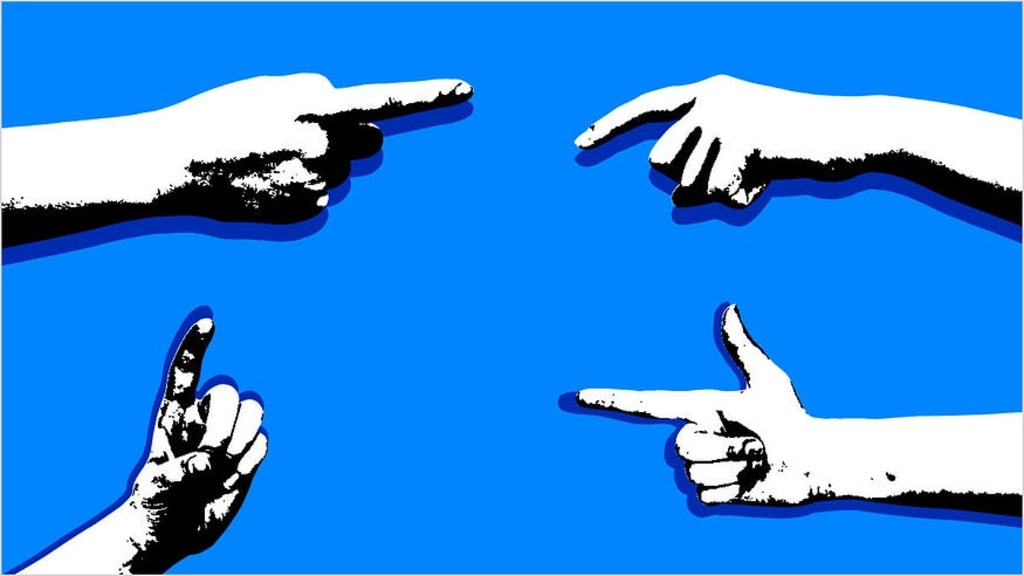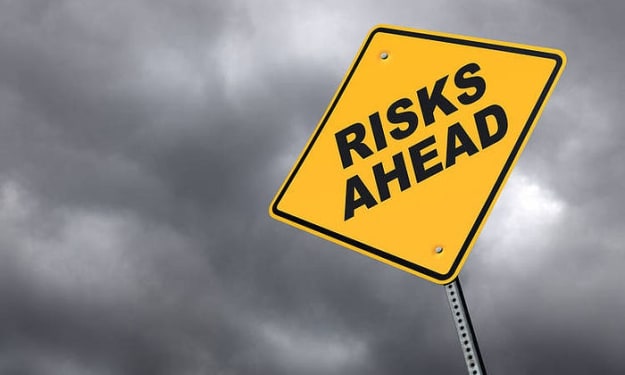
When you smell the breath of anybody else, you will easily tell whether it smells good or bad but for you to smell your own breath, you will have to take it out of your mouth first, take it a distance from you and then take a smell of it before you are able to tell if it smells good or bad, that's simply because you are already constantly exposed to it so it's your reference point, and you compare everything to that.
Likewise, when it comes to our mistakes, it is very difficult for us to realize that they are even mistakes because a balance has already been reached in our conscience, which has rationalized everything we do, so despite it being bad for others, for us, it is good. Even for murderers, everybody might look at murder as bad, but they see it as a good thing, and they have their reasons why they do it.
Now the question is how to solve this disparity because we can’t all have different definitions of what is good and bad, right and wrong are.
The law already provides some guidelines for a lot of these issues, so we can already comprehensively analyze what is good and bad is based on the law, But now for some little things which aren’t covered under the law and for which good and bad are on a range rather than on a binary definition, how do we determine what is right and wrong, good or bad?
Most of these issues are left to our personal judgement of the situations, which are heavily influenced by our biases and experiences, for example; some people consider insults as being very offensive, while others consider insults are just a casual way of socializing, yet again others see it as inoffensive. These disparities usually lead us down a lot of divisiveness and disputes, in the end it's difficult to say who is right and who is not because our definitions vary so much.
Blinded to our mistakes
Whether in personal relationships, professional endeavors, or everyday decision-making, our innate biases and psychological tendencies often blind us to our errors. Its difficult and literally impossible in some cases for us to accept that we are wrong, because that will imply that we are bad and being bad isn’t something anybody wants to be, especially when every rationalization we make doesn’t work out. People can do even the most evil things imaginable but as long as they are able to rationalize it in their minds as being something good, then they’ll be ok but admitting you are wrong is somewhat giving up on this rationalization we make so we’ll rather prove the other person wrong or blatantly deny everything.
We are always going to be biased because of our own interests and also because of our ego, which won’t allow us to see ourselves in a negative light. Admitting we are wrong will trigger all sorts of negative emotions, which will hurt our ego and so the body naturally can’t do things to hurt itself, so it will rather seek for every possible means to justify what happened than admit guilt and hurt our personal ego. This is precisely why, even if we are wrong, we naturally have a difficult time admitting it to ourselves in the end.
Societal Pressures
Being social creatures, we are also influenced by the surrounding environment which seeks for perfectionism, self-confidence, ambition, standards and much more, it glorifies those who are right and stigmatizes those who are wrong, so naturally we want to be glorified thereby accepted by our peers, so this leads us to do things which produce that result. In essence, being right makes us accepted and appreciated while being wrong makes us rejected and despised, so we are obviously going to only wish to be right even when we aren’t.
This fear of rejection makes it all the more difficult to accept our fault, think about all the mockery which could be made of you because you were wrong, compared to all the adulation you would receive when you are right. Therefore, nobody will wish for rejection, so we do everything we possibly can to prove to ourselves and to others that we are right all the time, even when we know we are wrong.
Overcoming the blind spots
Acknowledging our fallibility and embracing a growth mindset are essential steps towards overcoming our inherent biases and patching the blind spots. You can’t just confine yourself to your own ideas and rationalize in your mind while rejecting every external feedback, you must be willing to accept external review and criticism, as well as equally external information which comes to add to what you already know.
That's why its so easy to see others mistakes, we have no biases for them, no blind spots and there is often the assumption that we have all the information so its easy to get in the judgemental seat and put them on trial, our brains don’t feel compelled to defend them in any way.
Conclusion
Seeing our own mistakes is a humbling and empowering endeavor that requires courage, humility and self reflection. By understanding our inherent biases and the pyschological barriers which obscure our judgement, we can acknowledge our shortomings and embark on a journey of personal growth.
About the Creator
real Jema
If you could say one thing and be heard by the entire world, what would that be?






Comments (1)
Wow, this post is very informative! I like your writing style, good joob. If you're ever looking for new perspectives, feel free to check out my blog as well. I have recently posted some articles that explain curious psychological insights. Some of them are related to how biased our brain can be. I'd love to hear your thoughts on them :)